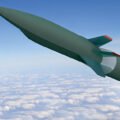The National Aeronautics and Space Administrations (NASA) is planning to include an Amazon Alexa on its upcoming Artemis missions. With the first launch currently planned for 2025, Artemis is the North American space agency’s first attempt at a series of moon landing missions since the famed Apollo missions of the 1960’s and 1970’s.
BACKGROUND: COMPUTER TAKE ME TO THE FUTURE
In science fiction, using a voice computer interface on a spaceship has been around since at least the 1960’s, when Commander Montgomery Scott and the rest of the Enterprise Crew on the TV show Star Trek would periodically talk to the ship’s on-board computer. In that world, the voice of the ship’s computer (as well as in many of the spinoff series) was that of series creator Gene Rodenberry’s wife and sometimes show guest star Majel Barrett.
In the 21st century, commercial voice-to-computer interfaces are commonplace, including Apple’s Siri and Amazon’s Alexa. The former likely served as the inspiration for the unconventional love story in the award-winning 2013 movie Her. However, according to the company that makes the latter, Alexa may be the first of these virtual trendsetters to go where no virtual woman has gone before.
ANALYSIS: ALEXA AND ARTEMIS GO TO THE MOON
According to a recent company press release, “Amazon and Lockheed Martin have announced plans to send Alexa to space as part of Artemis I, the first of several NASA missions intended to land the first woman and the first person of color on the Moon. Alexa will be joining the upcoming mission as part of Callisto, a technology demonstration payload embedded into NASA’s Orion spacecraft and built in collaboration with engineers from Amazon, Cisco, and Lockheed Martin.”
In that same press release, vice president of Alexa Everywhere at Amazon Aaron Rubenson goes on to explain how Majel Barret’s work in the 1960’s series helped motivate engineers in 2022.
“The Star Trek computer was part of our original inspiration for Alexa, so it’s exciting and humbling to see our vision for ambient intelligence come to life on board Orion,” said Rubenson. “We’re proud to be working with Lockheed Martin to push the limits of voice technology and AI, and we hope Alexa’s role in the mission helps inspire future scientists, astronauts, and engineers who will define this next era of space exploration.”
The press release also revealed precisely how engineers at Amazon have been working closely with their counterparts at Lockheed to seamlessly integrate Alexa into Callisto.
Specifically, they say Lockheed Martin had to design custom, space-grade hardware with Alexa built-in, “ensuring the device could withstand the intense shock and vibrations of launch and radiation exposure from passing through the Van Allen Radiation Belts.”
Amazon also contributed customized acoustic and audio processing software designed to “support far-field voice interactions through Alexa, tuning algorithms to account for noise from engines and pumps and the reverberation associated with so many metallic surfaces within the cabin.”
This particular version of Alexa being designed for NASA is also employing something Amazon calls its Local Voice Control technology. In short, it’s a variation on the traditional Alexa, but one that allows for the system to keep working even if there is limited (or even no) internet connectivity
“By combining Alexa’s world-class AI with local processing on board the spacecraft, we can bypass the delay (or latency) associated with sending information from the Moon to Earth and back,” the press release explains, “and allow future astronauts to access specific information and features almost instantly.”
Lastly, the system will be designed so the Orion capsule crew can ask Alexa for mission parameters like “Alexa, how fast is Orion traveling?” or “Alexa, what’s the temperature in the cabin?” as well as allowing astronauts the ability to control certain onboard systems like in-cabin lighting.
OUTLOOK: LETS JUST BE HAPPY THEY DIDN’T NAME IT HAL
It is still at least three years before Artemis 1 launches, and a lot of engineering needs to be done. But Amazon is already preparing for the launch. For example, the press release outlines a number of programs that the company will host as part of their Artemis education outreach, including their Future Engineers program called Alexa for Astronauts.
To learn more about that program as well as the other exciting things going on with Amazon and Artemis, just ask your own device by saying, “Alexa, take me to the moon!”
Follow and connect with author Christopher Plain on Twitter: @plain_fiction
